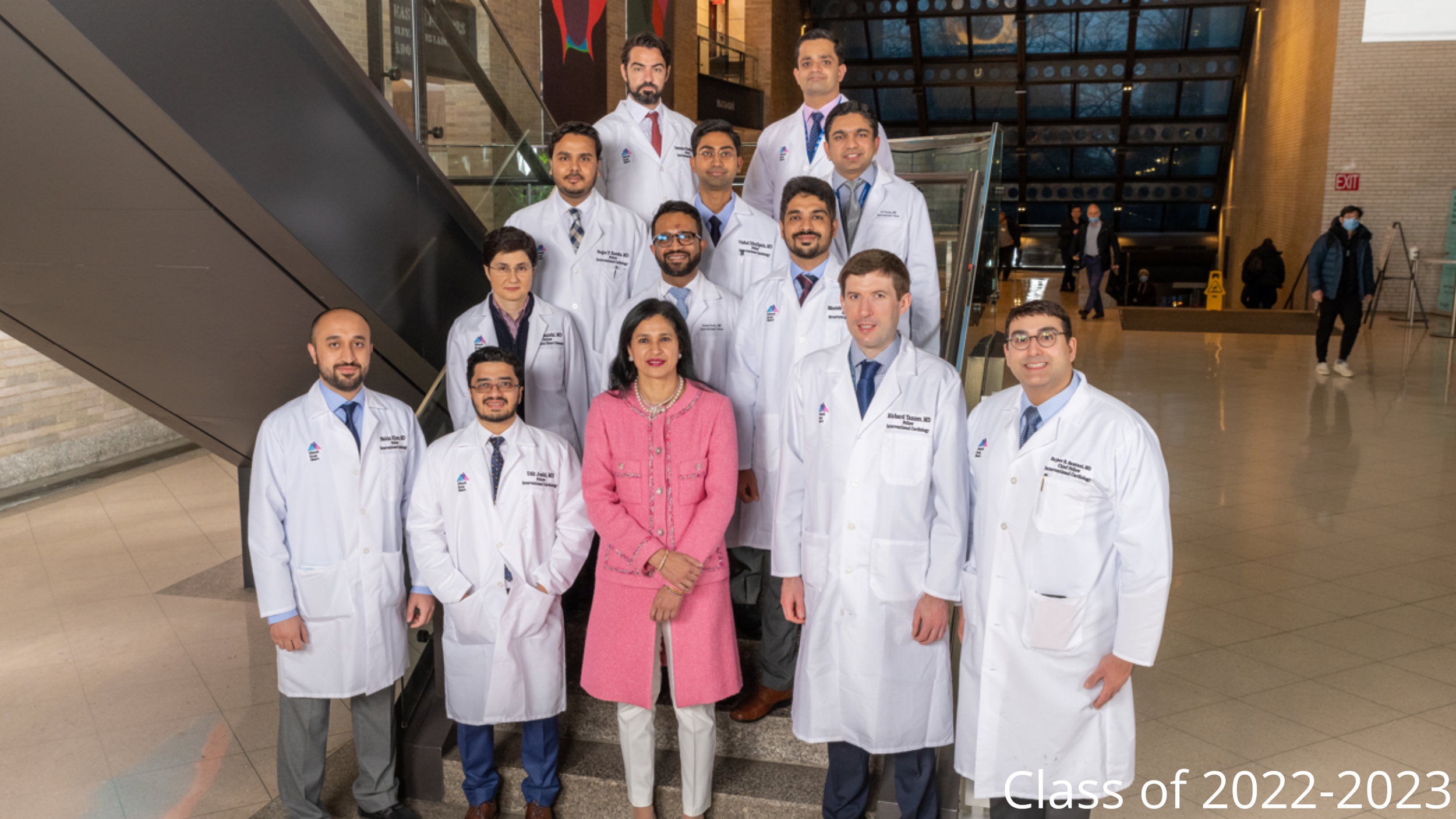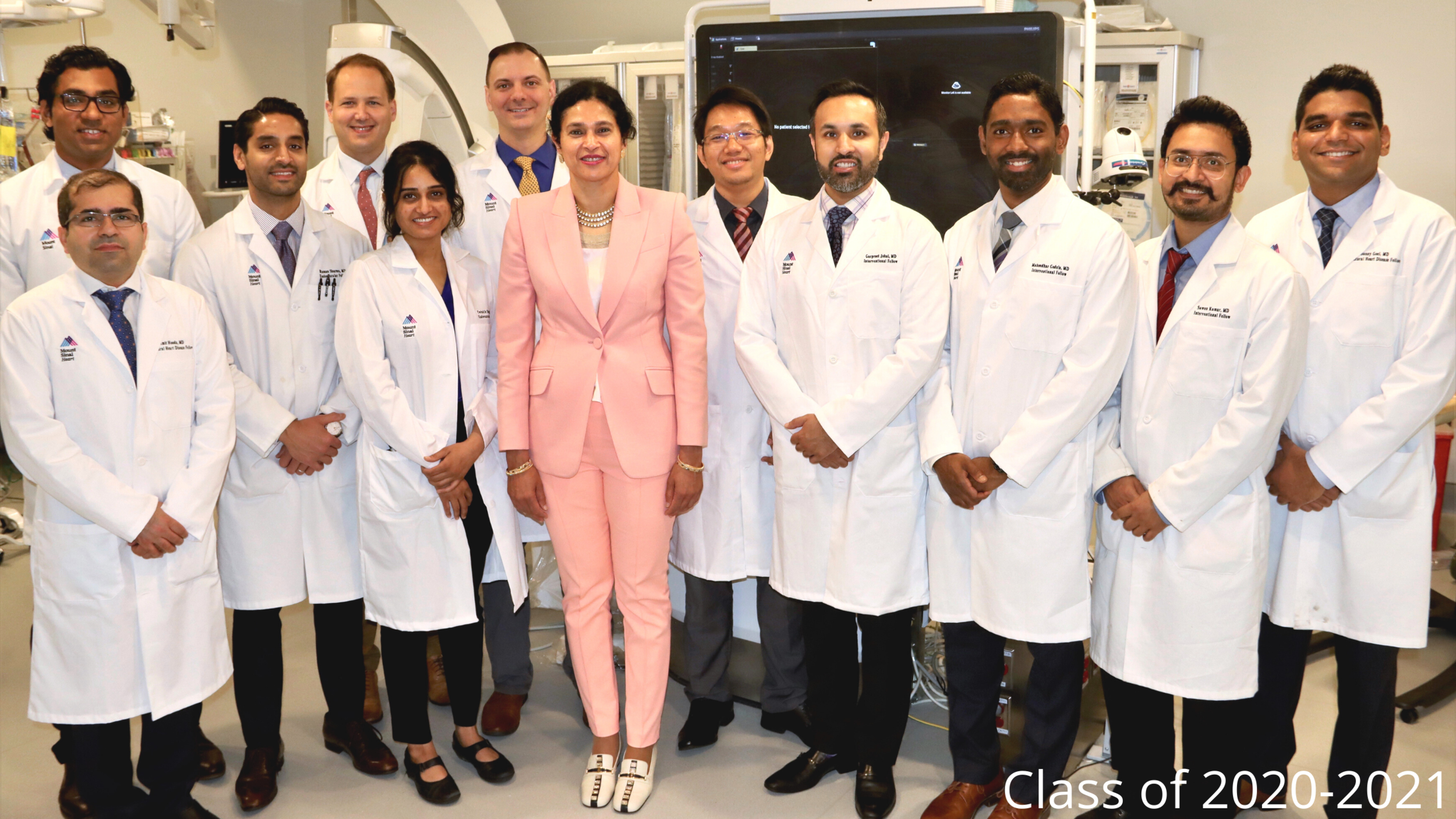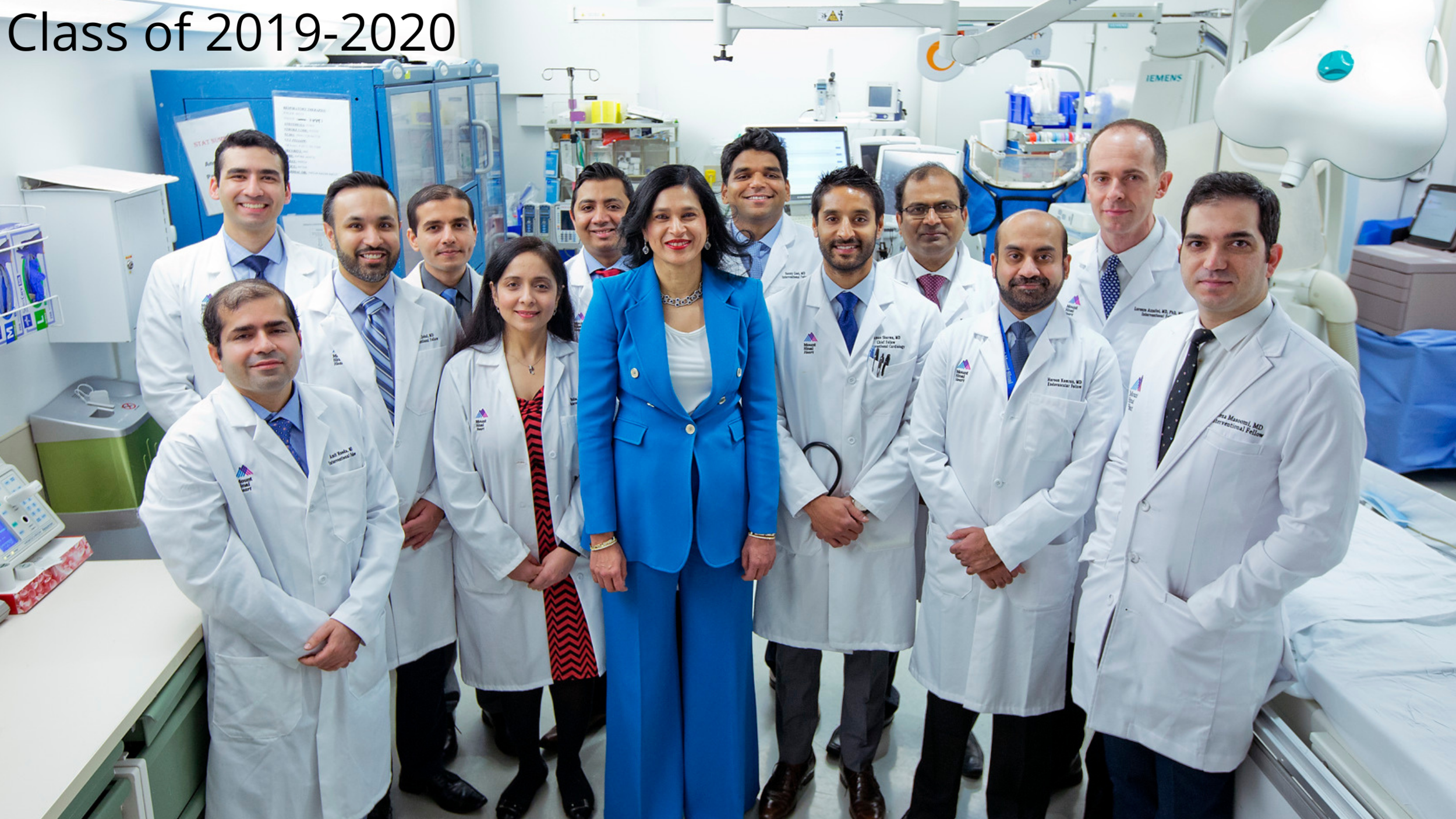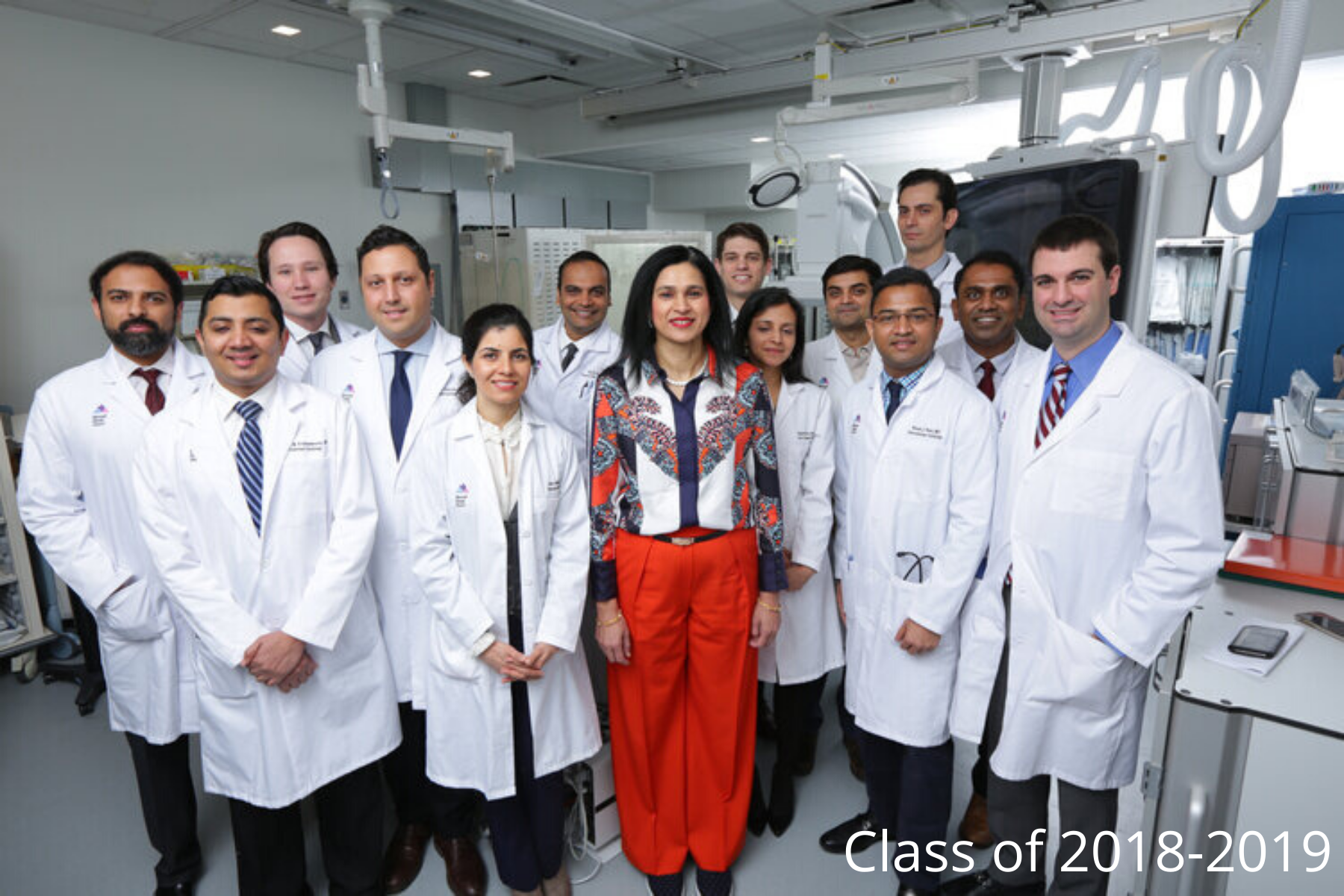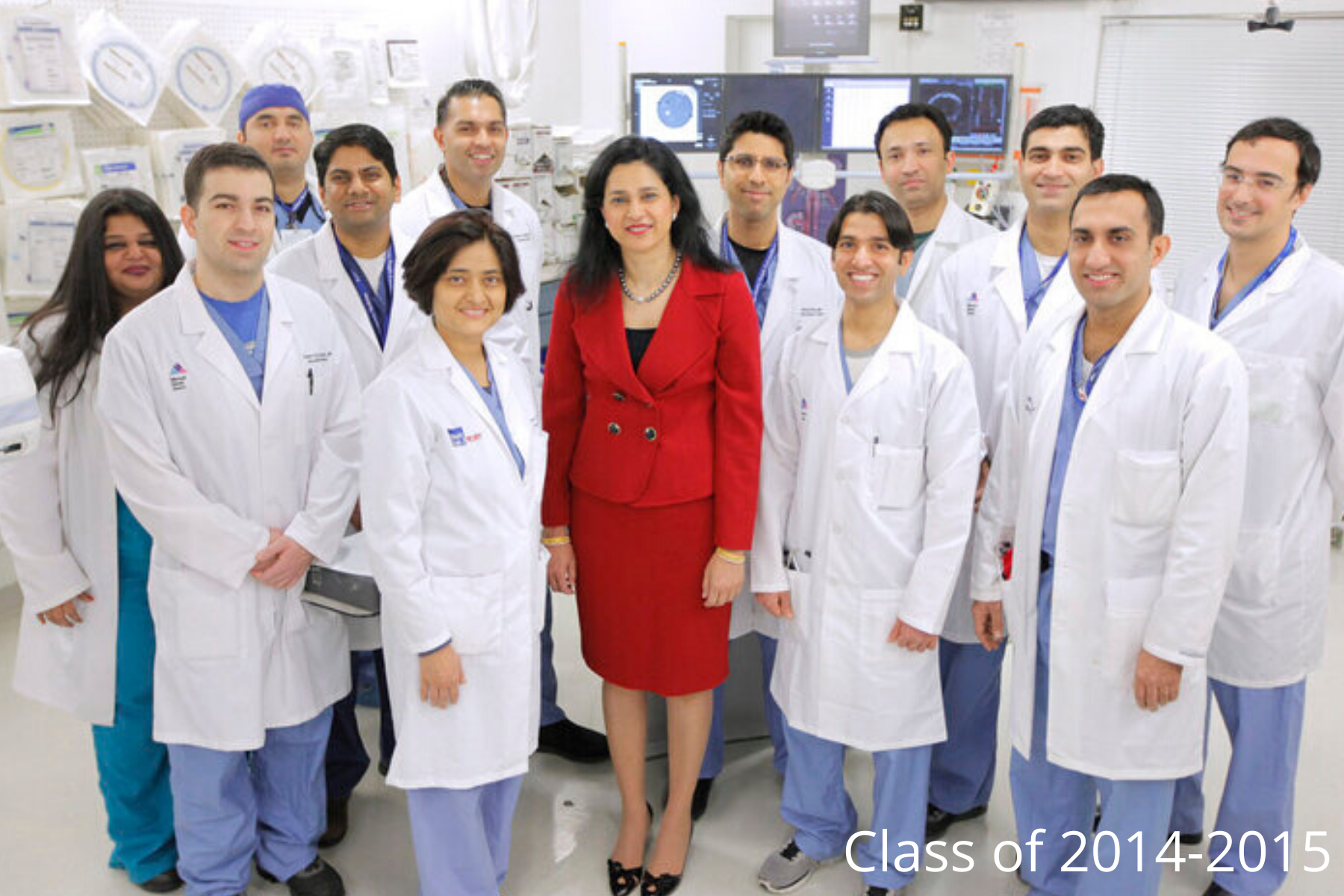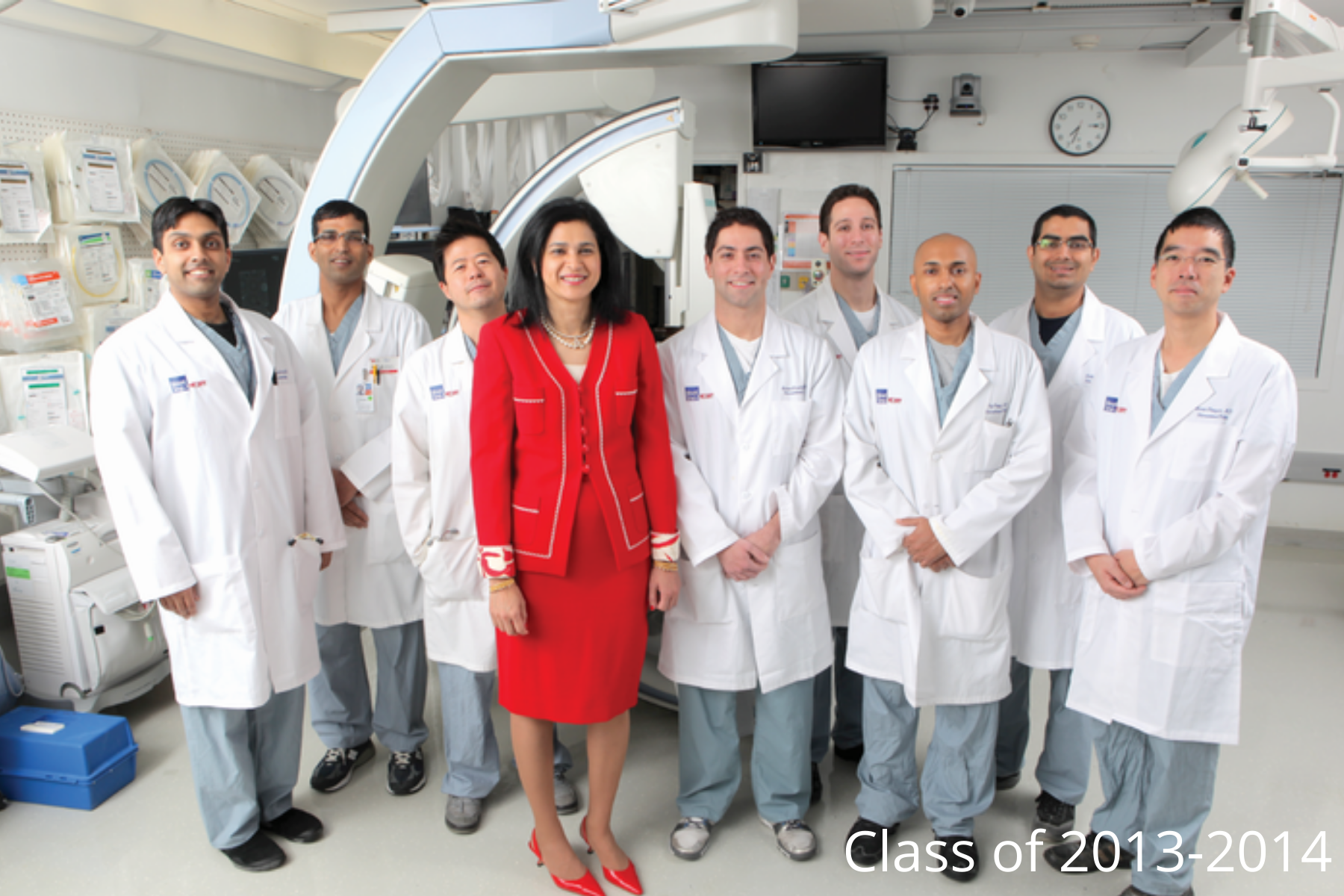Interventional Fellows
The Interventional Cardiology Fellowship at Mount Sinai Hospital is designed to train qualified applicants in various aspects of percutaneous coronary, non-coronary and endovascular interventions. It is a one-year fellowship after a formal three-year cardiology fellowship. Graduates of our training program are expected to be fully proficient in performing all aspects of interventional techniques such as: Balloon angioplasty (PTCA), Percutaneous Coronary Intervention (PCI), Rotational atherectomy, Orbital atherectomy, Laser atherectomy, Rheolytic thrombectomy, Distal embolic protection devices, Balloon aortic and mitral valvuloplasty, LV Assist devices including IABP, Impella, LVAD, Intravascular ultrasound (IVUS), Fractional flow reserve (FFR), Optical computed tomography (OCT), Assist in Transcatheter Aortic Valve Replacement (TAVR) procedures under the structural heart program, Diagnostic and interventional peripheral vascular procedures under the endovascular program.
We have a busy academic schedule with regular educational activities include case presentations, journal club, research publications and board review. The Mount Sinai Cath lab performs over 5,000 interventions every year. We see a large volume of referred cases with high risk features, thus providing our trainees with ample exposure to complex PCI cases. Typically, 1 to 3 fellows are selected from our own institution, 4 to 5 fellows from outside institutions within the USA, and two fellows from out of the country with a clear intention to return to their country after completing the interventional training. Each fellow can expect to perform between 400 and 500 interventions with progressive responsibility as an independent operator.

